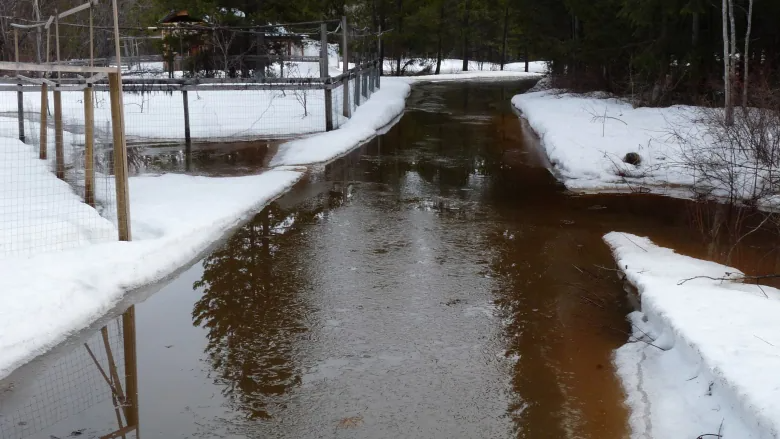The Simpcw First Nation has become the latest community to declare a part of its traditional territory near the B.C.-Alberta border to be protected from logging and other extractive activities. On Monday, the First Nation announced it had declared the Raush Valley watershed — home to rare temperate rainforests located in the Rocky Mountains, halfway between Valemount and McBride — as an Indigenous Protected and Conserved Area (IPCA), based on what it says is the community's inherent right over its unceded territory.
Logging near streams in B.C. Interior is warming water and threatening coho salmon: study
Decades of logging activities near rivers in B.C.'s Interior are driving up the temperatures of coho salmon habitats and threatening the species' survival, according to a new study. The study by Simon Fraser University and Fisheries and Oceans Canada (DFO), published last month in the Canadian Journal of Fisheries and Aquatic Sciences, looked into 28 tributaries of the North Thompson River watershed from Kamloops to Valemount.
B.C. agrees to pay $300K to couple who say logging flooded their property
Lawyers for the British Columbia government have agreed to pay $300,000 to settle a lawsuit by a couple whose property flooded after a third of the forest in the surrounding watershed was cut down. The agreement came in a handwritten note that was signed by the Crown's lawyers and handed over in court on the day the trial was set to begin last month. Ray Chipeniuk and Sonia Sawchuk had launched the lawsuit in 2014, claiming that B.C. Timber Sales, the provincial Crown agency responsible for auctioning about 20 per cent of B.C.'s annual allowable cut, was negligent in its failure to take reasonable care to ensure their property in northwestern B.C. would not be damaged by the logging.




